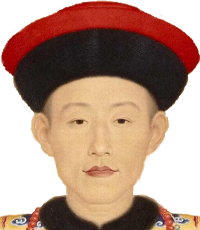Chairman Mao and the Legalists
Qin Shi Huang, the First Emperor of China, relied heavily on advice from the so called Legalist school of political philosophy. Their suggestions emphasized ruthless policies and underhanded tactics. Yet the Qin dynasty lasted only 15 years, and when it was replaced by the Han dynasty, the new line of emperors decided that Confucians should replace the Legalists as advisers. The teachings of Confucius were very different. He emphasized the role of virtue, both in the rulers and in his subjects, and the importance of fulfilling one’s social obligations. Yet, as many Chinese people have been quick to point out, the ruthless power politics of the Legalists did not disappear. In fact, references to Confucianism have often been seen as a pretense and Legalism as the enduring reality of politics in China.
To reformist Chinese intellectuals at the turn of the twentieth-century, Confucianism came to symbolize everything that was wrong with the country. Emphasizing literary studies at the expense of science and technology, Confucianism had allegedly blocked economic development; it was also said to stifle creativity and entrepreneurship. To these conclusions the Chinese Communist Party added that Confucianism was a feudal ideology which gave ideological support to an exploitative landowning class. During the so called “Cultural Revolution,” 1966-1976, Mao Zedong, China’s leader, relied on gangs of Red Guards, militant militia groups, to intimidate his enemies. During the last stage of these campaigns, 1973-1976, Confucius became an official enemy of the state. In gigantic posters and in constantly repeated speeches, Chinese people were encouraged to “Criticize Lin, Criticize Confucius” – “Lin” referring to Lin Biao, one of Mao’s contemporary enemies. [Read more: “Confucius and his institutes“]
In contrast to all previous Chinese leaders, Mao was not afraid to declare his admiration for the methods employed by the Legalists. In fact, he was quite explicitly modeling himself on the First Emperor, who now was lauded as the kind of leader which China needed in order to create a strong, unified, state. Mao only criticized him for not being ruthless enough. The First Emperor, said Mao, buried 460 scholars alive, but “we have buried forty-six thousand scholars alive … We have surpassed Qin Shi Huang a hundredfold.”

